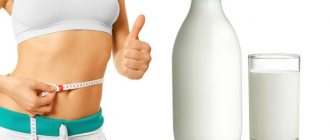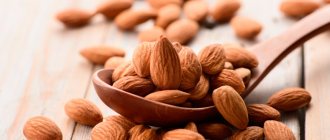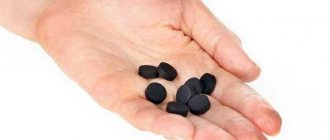The egg is truly considered one of the most nutritious foods in the whole world, because it contains all the necessary nutrients that are simply necessary for the formation of a living organism. In this article you will learn about how many eggs you can eat per day without harm to the body.
At one time, eggs received a bad reputation thanks to the cholesterol contained in the yolk. One medium egg contains about 185 mg of cholesterol, which is more than 60% of the recommended daily value. This is why most athletes separate the yolks from the whites, fearing for their cholesterol levels, which can lead to cardiovascular disease. But in fact, not everything is as bad as it might seem at first glance, let's figure it out.
Why are eggs supposedly dangerous?
People are wary of consuming eggs because of the cholesterol, the fat they contain that can eat up their waistlines.
There is no need to be afraid of eggs. Sure, they contain a little fat, but those extra calories are very beneficial.
To all athletes:
Consuming whole eggs increased muscle protein synthesis by 45% compared to consuming egg whites alone (Vilet, et al. 2017).
But even more important is the largest, best, and perhaps most accurate meta-analysis of egg studies, just released by Mahshid Dehghan and colleagues, who
no connection found
between egg consumption, blood lipid levels, mortality or severe cardiovascular disease.
And unlike some experiments in which nutritionists recruit 10 subjects who need cash to buy a bottle of liquor, Dehghan analyzed the health records of 177,000 people from 50 countries on six continents.
Composition of a chicken egg
Eggs are considered one of the most inexpensive sources of high-quality, easily digestible protein. Egg white contains many essential amino acids: it can completely replace expensive amino acid complexes for athletes. Nutritionists say that you can eat up to 10 eggs a day: this will not cause the slightest harm to your health.
The eggs contain:
- up to 7 grams of protein;
- 0.5 grams of carbohydrates;
- 4 grams of fat;
- 150 milligrams of lecithin;
- minerals and vitamins.
Where did the fear of egg yolks come from?
There have been many small studies done on the effects of eggs on cardiovascular disease, and the results are somewhat confusing and in some cases contradictory.
Some have shown that egg consumption is not associated with an increased risk of heart disease, but one meta-analysis of 500,000 people found just the opposite -
Egg consumption is associated with an 11% reduced risk of cardiovascular disease.
A subsequent pooled analysis was then conducted and the results showed a 2% increase in all-cause mortality with each additional half-egg eaten per day, despite reductions in bad cholesterol and blood pressure.
It's strange, but let's not forget that most of the previous studies on the benefits of eggs were conducted in North America, Europe, China and Japan, and almost no information came from South America, South Asia, Africa or the Middle East.
More details:
Chicken eggs do NOT worsen your cholesterol profile, but improve it!
Who knows, maybe some unseen territorial factors influence egg statistics, and maybe analyzing information on ignored demographic regions can clarify this.
At least that’s what Dehghan and his colleagues suggested when they decided to conduct a study based on data from 50 countries.
How many eggs should you eat per day to gain muscle mass? Nutrition tips
Before you start learning about the foods you should eat when you set a goal to build muscle, there are a few tips to consider. These tips will help you decide what to eat and what foods in your diet can lead to inhibition of muscle growth. So, you should pay due attention to the following products:
- Buckwheat and oatmeal. These two cereals must certainly be included in the diet of a person who wants to achieve muscle growth due to their enriched composition. Buckwheat contains a large amount of protein. The percentage of protein is 12%. This amount of protein allows you to achieve muscle growth. Buckwheat also contains the necessary amount of carbohydrates required before training. Oatmeal is no less healthy than buckwheat, so you should eat these porridges as often as possible.
- The diet needs to be diluted with a product such as eggs. Eggs are a source of protein, which is required for muscle growth. How many eggs should you eat per day? You need to eat at least 4 - 5 eggs a day. Do not oversaturate your body with yolks. Powdered eggs can replace eggs.
Eggs are a source of protein
- You need to exclude from your diet meat such as pork, which contains harmful fats that allow you to build not only muscles, but also fat mass.
It is better to exclude from your diet processed foods that contain unnecessary calories and fats. Instead, food should be healthy and easily digestible.
These can be all kinds of cereals that contain a sufficient amount of carbohydrates, while their calorie content is low. Barley, rice, buckwheat, and pasta may appear in the diet.
Don't forget about proteins, which include products such as cottage cheese, egg powder, eggs, and chicken breast. Vegetables and fruits should be consumed in the required quantity. In addition, to gain muscle mass, a man must follow the consumption of dietary supplements. How much protein, fat and carbohydrates do you need to consume to gain weight? The calculation of their ratio should be 30%, 60%, 10%, respectively.
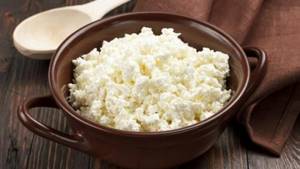
Research results
Scientists who conducted a large-scale analysis of data from multiple countries from different continents, combining the histories of 177,000 individuals, found no increase in the rate of cardiovascular disease or mortality
among people who did not have these diseases or diabetes.
They also observed no association between egg or dietary cholesterol intake and blood lipid levels.
Unfortunately, these findings were based on consuming one egg per day, which is quite modest by bodybuilding standards.
However, this is much more than what scientists allowed us to do based on the results of previous experiments that “justified” the eggs.
Many have suggested that it is safe to consume 1.5 eggs per week, which is completely useless. Yes, you can safely eat even a capsule of washing powder once a week!
We, those training with iron, need to know whether we can safely consume 4-6 eggs a day several times a week?
We can look at various factors and wonder why an analysis of data from 50 countries found no link between egg consumption and poor health.
Limited use
If you are the owner of an enviable figure, then you should worry about your health. Is it possible to eat the product in question on a diet? It’s even necessary - after all, it is extremely nutritious, which is important when limiting your diet. How many pieces can you consume per week? This already depends on the diet you choose.
Being a follower of a certain dietary style, for example, a vegetarian, a raw foodist, the answer to the question: “How many boiled eggs can you eat per week?” you won't always get it. Each individual direction in nutrition has its own “charter”, what is allowed and what is not. There are vegetarians who refuse the food under discussion, and there are those who eat them. Raw foodists can eat them at the initial stage of changing their diet.
Diagnosing chronic and infectious diseases does not allow for independent formation of a menu. The patient should always consult with a physician and obtain recommendations regarding dietary restrictions and supplements. The doctor will explain whether it is possible to cook your favorite omelet with a certain diagnosis. Are his recommendations not supported by clear rationales? Look for another specialist.
It is unacceptable to use the product in question if you are allergic to it. In children, it often goes away by the age of 5-7 years. Is it possible to eat yolks alone, since it is the white that is allergenic? It is undesirable, but each organism will react individually to such tactics.
When gallstone disease is diagnosed, the diet changes dramatically. Since the delicacy in question stimulates the outflow of bile, it becomes the primary provocateur of painful colic. Discuss how many eggs you can eat per week with your doctor, assessing your well-being after eating them.
What are the benefits of eggs?
It is well known that dietary cholesterol has a fairly weak effect on the levels of total cholesterol and bad LDL cholesterol.
Phospholipids contained in eggs (a class of lipids that form cell membranes) increase levels of good cholesterol, which neutralizes the possible negative effects of eggs.
Replacing carbohydrates with eggs (or any protein) improves blood lipid levels, reduces blood pressure and the risk of cardiovascular disease.
Phospholipids in eggs can either enhance or neutralize inflammation, which is very individual (a decrease in inflammation in obese patients is possible and a slight increase in inflammation in lean people).
Egg yolk is high in lutein and zeaxanthin, two polyphenols that have antioxidant and anti-inflammatory properties.
What is the best way to eat eggs?

You can cook eggs in different ways - soft-boiled or hard-boiled, fried, poached, scrambled eggs or other dishes, combined with various additional ingredients. However, during heat treatment, some of the beneficial properties are lost. On the other hand, raw eggs can infect a person with salmonellosis, parasites, etc. Therefore, the optimal solution is a soft-boiled egg. It retains almost 100% of its beneficial substances, but at the same time eliminates the risk of infection.
So how many eggs can you eat without harming your health?
So, throw caution to the wind and consume eggs in any quantity? It's hard to say for sure, since no studies have been conducted in which subjects were allowed to empty the coop every day.
Let's make a decision using logic. First, as already mentioned, dietary cholesterol has almost no effect on blood cholesterol levels. The liver and intestines produce 80-85% of everything necessary for the production of cell membranes and hormones - vitamin D, bile acid, etc. We get the rest from food.
The body is able to adjust itself within certain limits, so if little cholesterol comes from food, it will produce more. Conversely, if you consume a lot of cholesterol, it will reduce production.
But the level of bad cholesterol is much more significantly influenced by other factors - not the amount of dietary cholesterol, but poor nutrition, lack of physical activity and excess weight.
But just when it seems like everything is already in order, damn statistics intervene.
There is no evidence yet that lowering cholesterol levels prolongs life. In fact, when cholesterol decreases below the level of 180 mg, which most doctors consider normal, the mortality rate begins to rise.
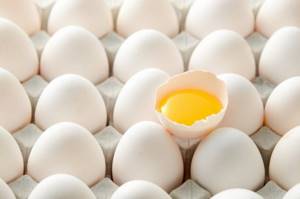
Saturated fat is thought to increase cholesterol levels, and eggs contain large amounts of it. And again statistics get in the way. A 1991 study funded by the US Surgeon's Office found that completely eliminating saturated fat from the diet was associated with a two-week increase in life expectancy for the average man or woman. I would say - insignificant results.
How to eat correctly, and most importantly - how much
In bodybuilding, it is allowed to use this product in fairly large quantities - up to ten pieces per day. It all depends on your personal protein needs, as well as your diet. So, cutting athletes need to give up the yolk - and during this period, eat up to six proteins a day.
And with a normal training regimen, there is no need to give up the yolk - it increases the nutritional value of the protein, it contains amino acids that are beneficial for the body. Of course, the above ten pieces should be divided into several meals, and not eaten in one sitting.
Many bodybuilders prefer quail eggs - they have greater nutritional value compared to chicken eggs: they contain more protein, vitamins, and minerals.
And the most important advantage is that they can be drunk raw, because quails do not suffer from salmonellosis. Athletes recommend eating up to 20 pieces a day - raw or cooked. By the way, they also increase hemoglobin levels and also do not cause allergies.


